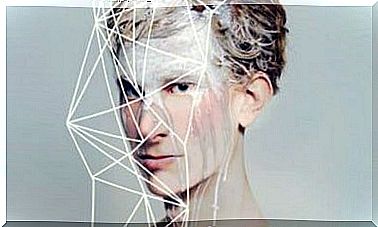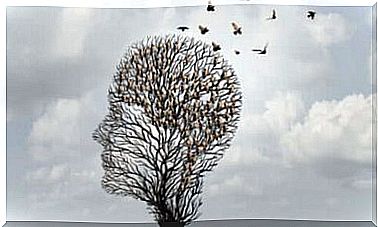Physical Contact: A Weapon Against Stress And Sadness

Activities that require direct physical contact today are numerous and we reject or appreciate them depending on our personality. A question naturally arises: why are some people unable to make physical contact with others or are they bothered by them? And why do others, on the contrary, seek it?
Nobody questions the communicative and expressive importance of physical contact in our society anymore. Hall in 1969 spoke of the importance of contact and the use we make of distances; pointed out how, for example, the lack of physical contact can alter the physical and mental development of the child.
Research conducted by the University of Duke, United States, has come to the conclusion that human beings need to receive hugs and caresses from birth. Physical contact actually plays a crucial role in neuronal development.
Touching a loved one stimulates in our body the production of oxytocin, dopamine and neurotransmitters that counteract stress and sadness; the result is a feeling of greater well-being. Giving or receiving a hug also increases serotonin levels, thereby improving mood.

The physical and emotional importance of contact
Physical contact activates a series of physiological responses that favor our emotional well-being. It causes the body to produce less cortisol, a hormone related to stress, and more oxytocin, a hormone linked to positive affects.
It also stimulates the production of serotonin thus inducing a relaxing effect: it lowers blood pressure and heart rate.
Hugging or holding hands for at least ten minutes can reduce the damaging effects of stress. This is what a group of researchers from the University of North Carolina in Chapel Hill, in the USA claims.
Other research has shown that physical contact activates the cerebral cortex, an area of the brain that allows us to feel comfortable and confident. From these results it was concluded that those who interact with others through touch are perceived as more honest and trustworthy.
Touch is largely underestimated while being a fundamental sense for survival. This is especially true in the first years of life when stroking and physical contact are as necessary as feeding or sleeping. Over the years, physical contact is replaced by eye contact.
Squeezing or stroking stimulates the immune system, reduces stress and helps you sleep better. It is essential for our physical and mental health, as well as being a tool for communicating.

Loneliness alters the brain
We already knew that extreme loneliness can cause a variety of ailments including depression, anxiety, dementia and psychosis. A recent study, however, identified loneliness as a further negative, perhaps even more dangerous, effect.
The research team observed specimens of mice – social animals like us – locked in an enclosure equipped with toys, mazes and other distractions and a group in social isolation.
According to the results, published in the journal Neurobiology of Learning and Memory , forced isolation caused rodents to reduce the volume of the hippocampus, an area of the brain essential for learning and memory.
Although the findings cannot be directly applied to humans, research suggests possible parallels. This may mean that physical contact and social intercourse are two factors to be taken into greater consideration if we want our brains to stay healthy and for cognitive skills not to deteriorate.
The researchers also came to another conclusion: prolonged loneliness in adulthood causes brain disorders and learning deficits. Social isolation in adulthood is a psychosocial stressor that can be reflected in a range of endocrine and behavioral disorders.
It is therefore important to take these results into account. We remember that every time we hug someone with affection, we gain years of life, as well as a better quality of life.









